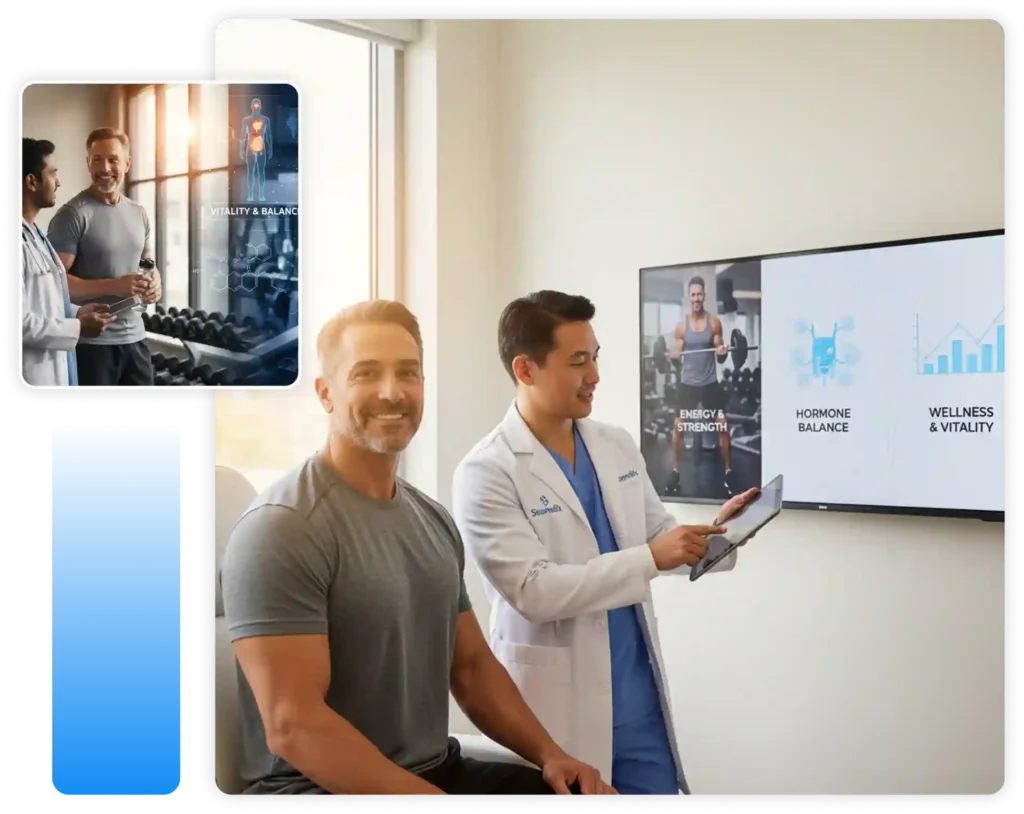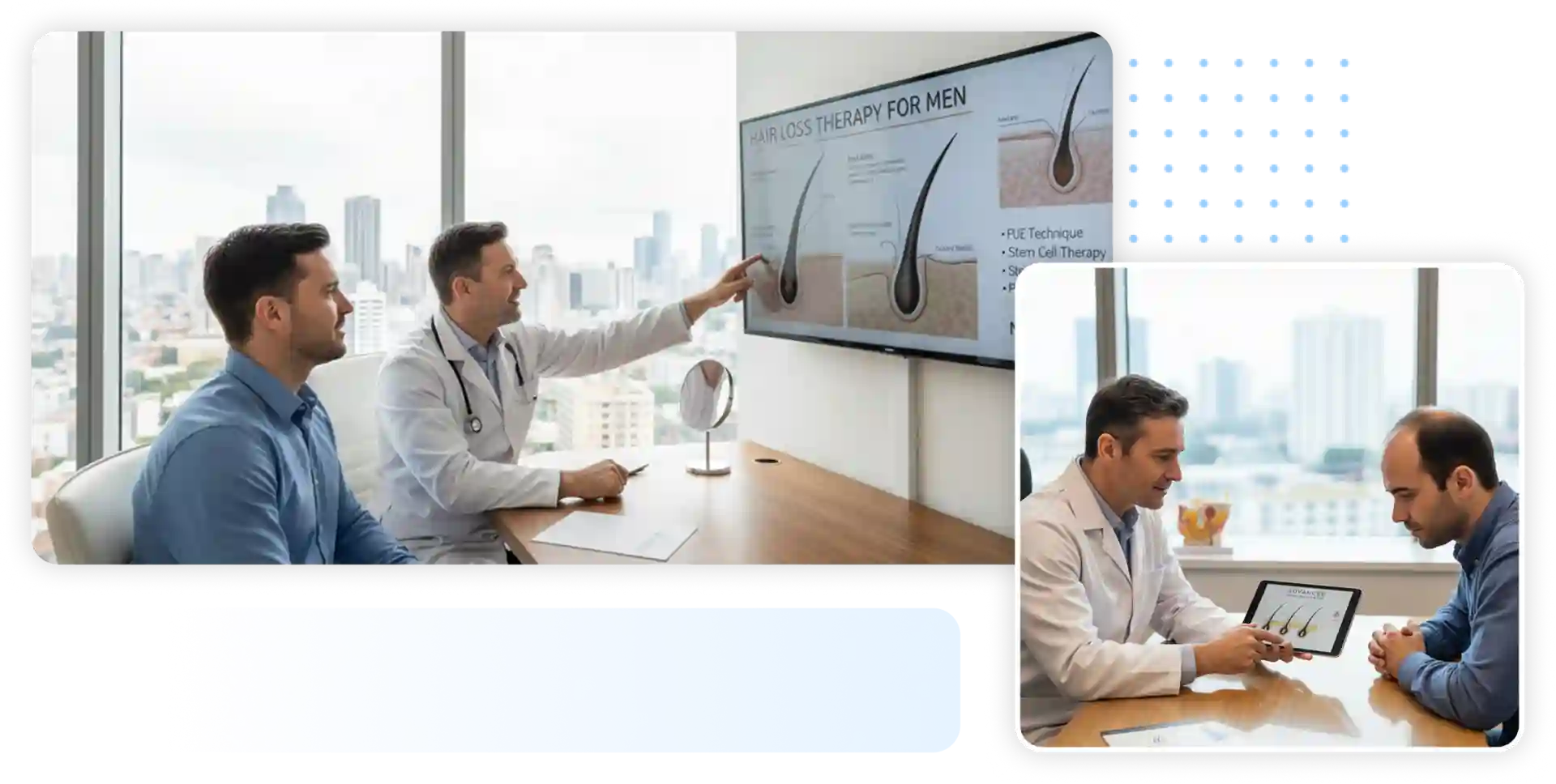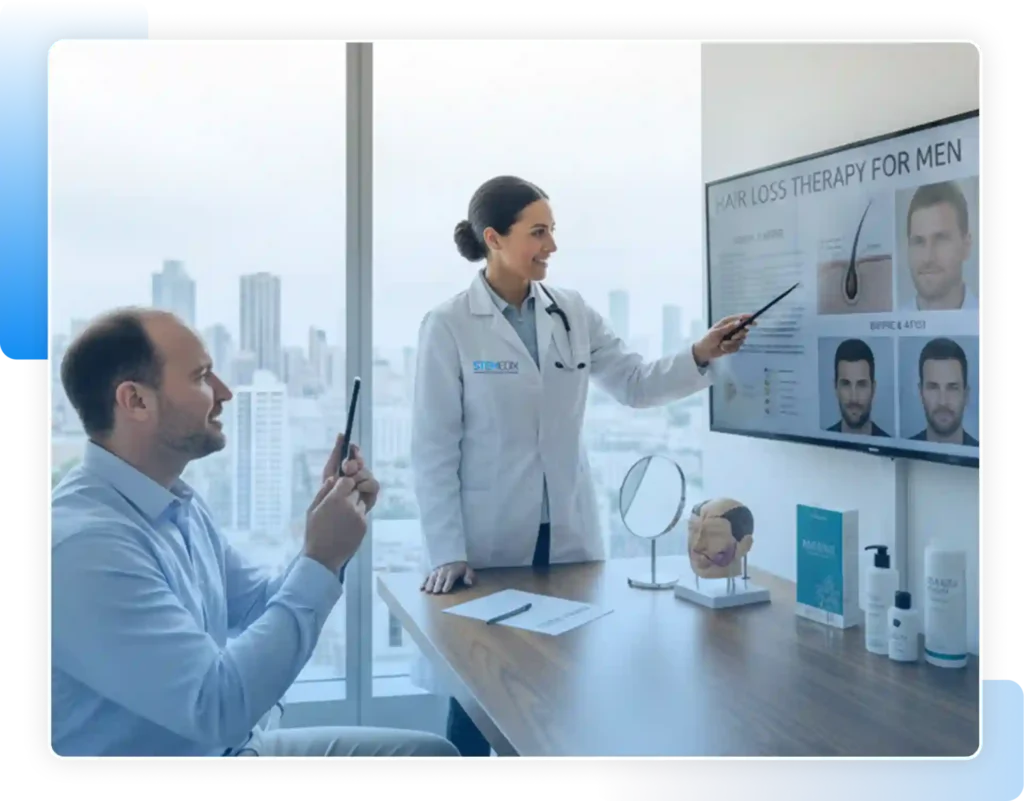Hormone Therapy for Men

Men’s Health as They Age
As men age, they typically experience a decline in testosterone levels, leading to reduced muscle mass, bone density, and changes in mood and sexual function. Muscle strength decreases, bone health can deteriorate, and metabolism slows down, potentially causing weight gain. Cardiovascular risks increase due to less elastic blood vessels, and prostate gland enlargement might cause urinary issues. Skin becomes thinner and more prone to wrinkles, hair loss is common, and vision and hearing can decline. Cognitive changes might occur, and the immune system could weaken.
Overall, during this “male menopause” known as andropause, it becomes crucial to maintain a healthy lifestyle to mitigate these effects and support well-being.
Men’s Health Management
Hormone Pellet Therapy
Performed typically every 6 months, this medical treatment delivers bioidentical testosterone hormones to the body through small pellets inserted under the skin. These pellets are considered “bioidentical” meaning that these hormones are very similar to the body’s own hormones on a molecular level. They are designed to release testosterone gradually over time to address hormonal imbalances or deficiencies. Options for home use are also available.
Benefits of pellet therapy for men are increased testosterone levels, improved muscle mass and strength, enhanced bone health, increased libido, improved mood and cognitive function, reduced fatigue, improved cardiovascular health, weight management, and controlled diabetes.


Peptide Therapy
Human Growth Hormone (HGH), produced by the pituitary gland, is a crucial peptide hormone that regulates growth, metabolism, and body composition. With a weekly injection, these Peptides help increase the natural production of HGH by stimulating the pituitary gland. It maintains muscle and bone health, aids in cell repair, and influences metabolism and immune function.
P-Shot Therapies
Testosterone plays a significant role in regulating sexual desire or libido as well as the health of penile tissue that is important for erectile function. When testosterone levels are low, a decrease in libido can occur, leading to reduced interest in sexual activity, which in turn can contribute to difficulties in achieving or maintaining an erection. Low levels can additionally lead to the loss of smooth muscle tissue, potentially resulting in difficulties with achieving and maintaining an erection.

Platelet-rich plasma (PRP) therapy
This therapy is a medical treatment that involves using a concentrated solution of platelets and growth factors from a person’s own blood to potentially improve the health of penile tissues, enhance blood flow to the area, and lead to improved erectile function.

Regenerative medicine therapy
This therapy utilizes extracellular vesicles, also known as exosomes, for addressing erectile dysfunction impacted by low testosterone levels. Exosomes derived from mesenchymal stem cells (MSCs) contain bioactive factors that promote tissue regeneration, angiogenesis (the formation of new blood vessels), and anti-inflammatory responses. These factors could potentially contribute to the improvement of erectile function by enhancing the health and function of penile tissues and blood vessels.

Hair Loss Therapy
For men who may be experiencing hair loss due to hormonal imbalances have an opportunity to stimulate hair follicles with regenerative medicine therapy options. Here are the regenerative techniques available for potentially promoting hair growth.

Platelet-Rich Plasma (PRP) Therapy:
PRP therapy involves drawing a small amount of the patient’s blood, processing it to concentrate the platelets. Platelets contain growth factors that can potentially stimulate hair follicles and promote hair growth.
Regenerate:
Some stem cells have the potential per studies, to differentiate into various cell types, including hair follicle cells. These stem cells, when injected into the scalp can potentially regenerate hair follicles.
Exosomes:
Exosomes are small vesicles released by cells that contain various bioactive molecules, including growth factors and microRNAs. Exosomes derived from stem cells or other sources can deliver these bioactive molecules to the scalp and potentially stimulate hair follicle growth.
These methods can be applied using a technique called microneedling. Microneedling involves creating tiny, controlled injuries on the scalp using fine needles. This process stimulates the body’s natural wound healing response, which can potentially lead to increased blood flow and growth factors in the scalp, promoting hair growth.
Find out how hormone therapy can help you get back on track and live a fuller, healthier life.
